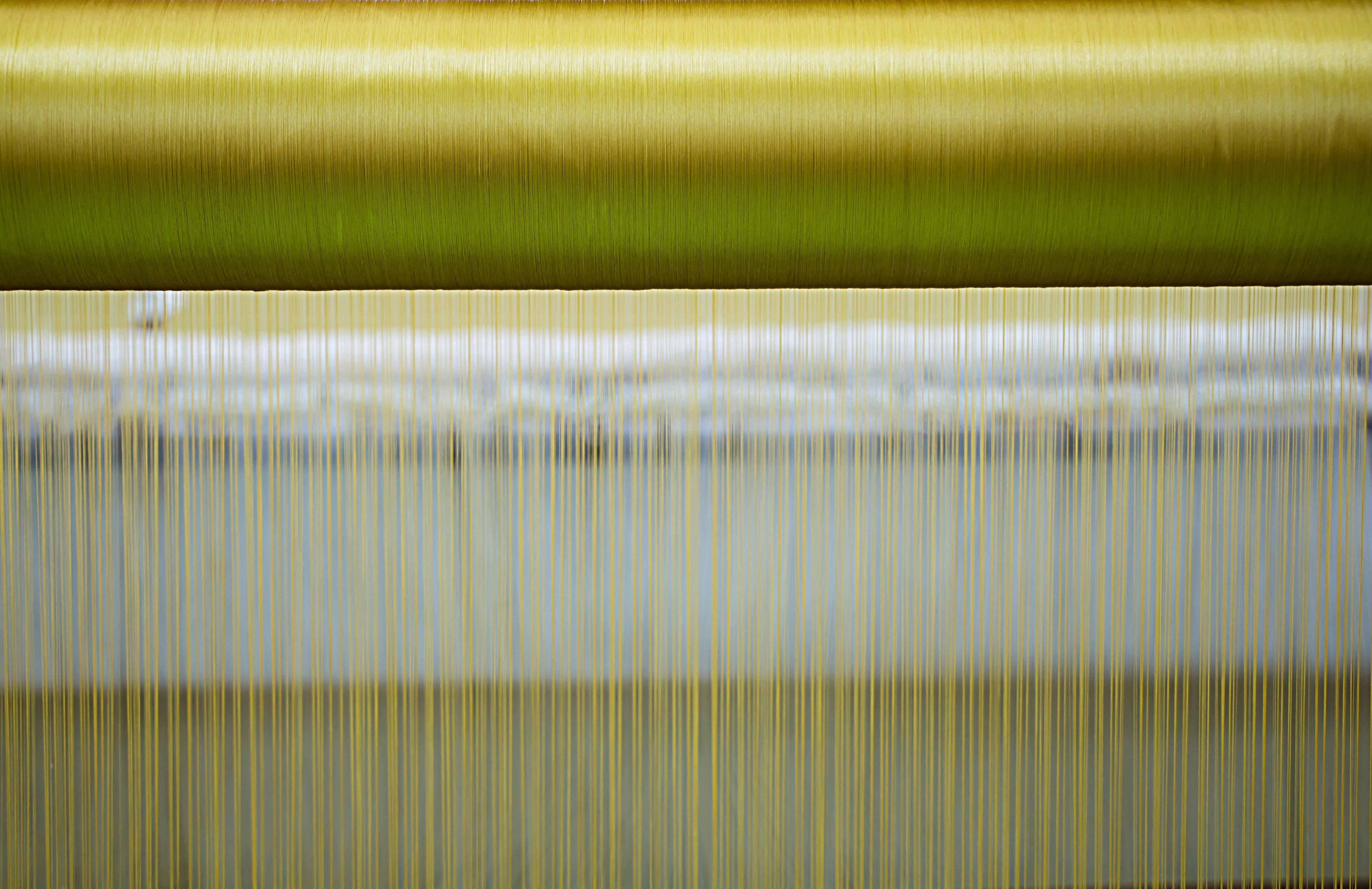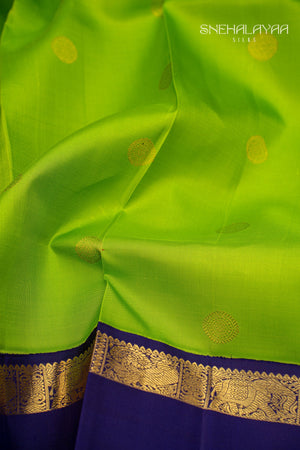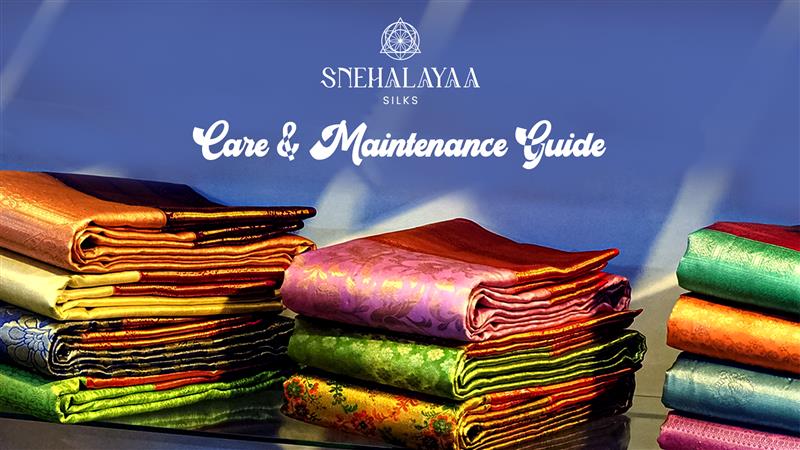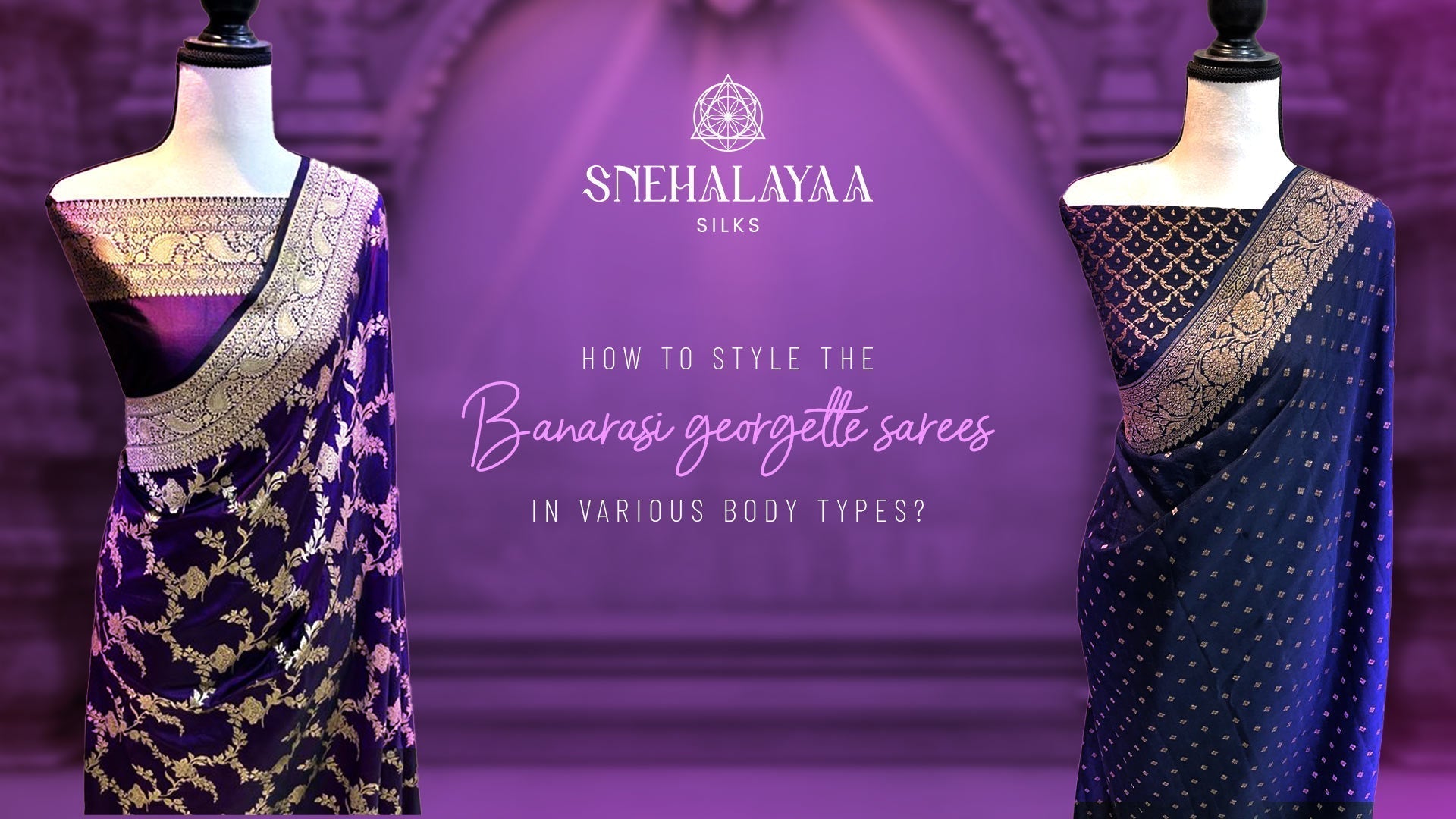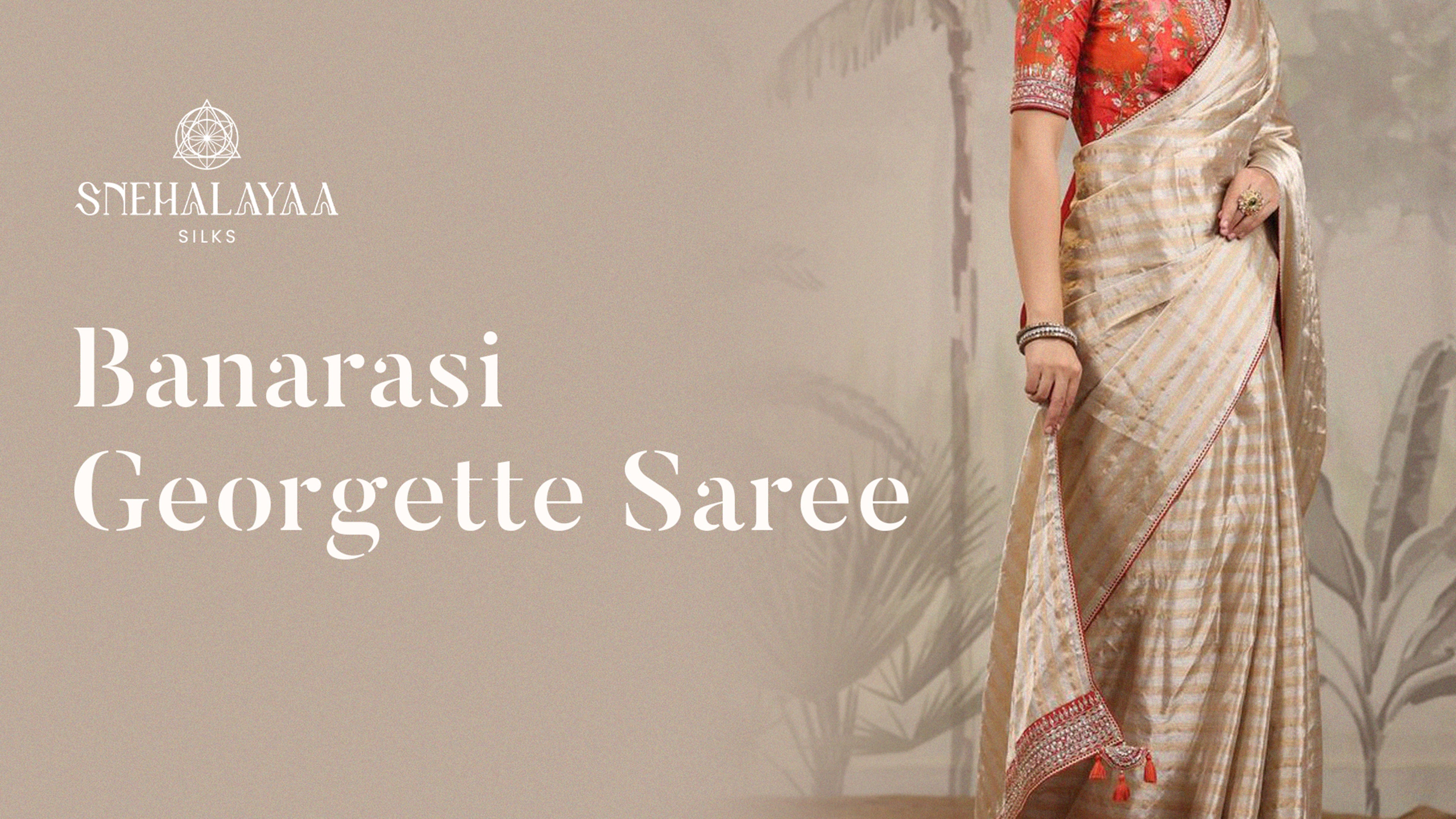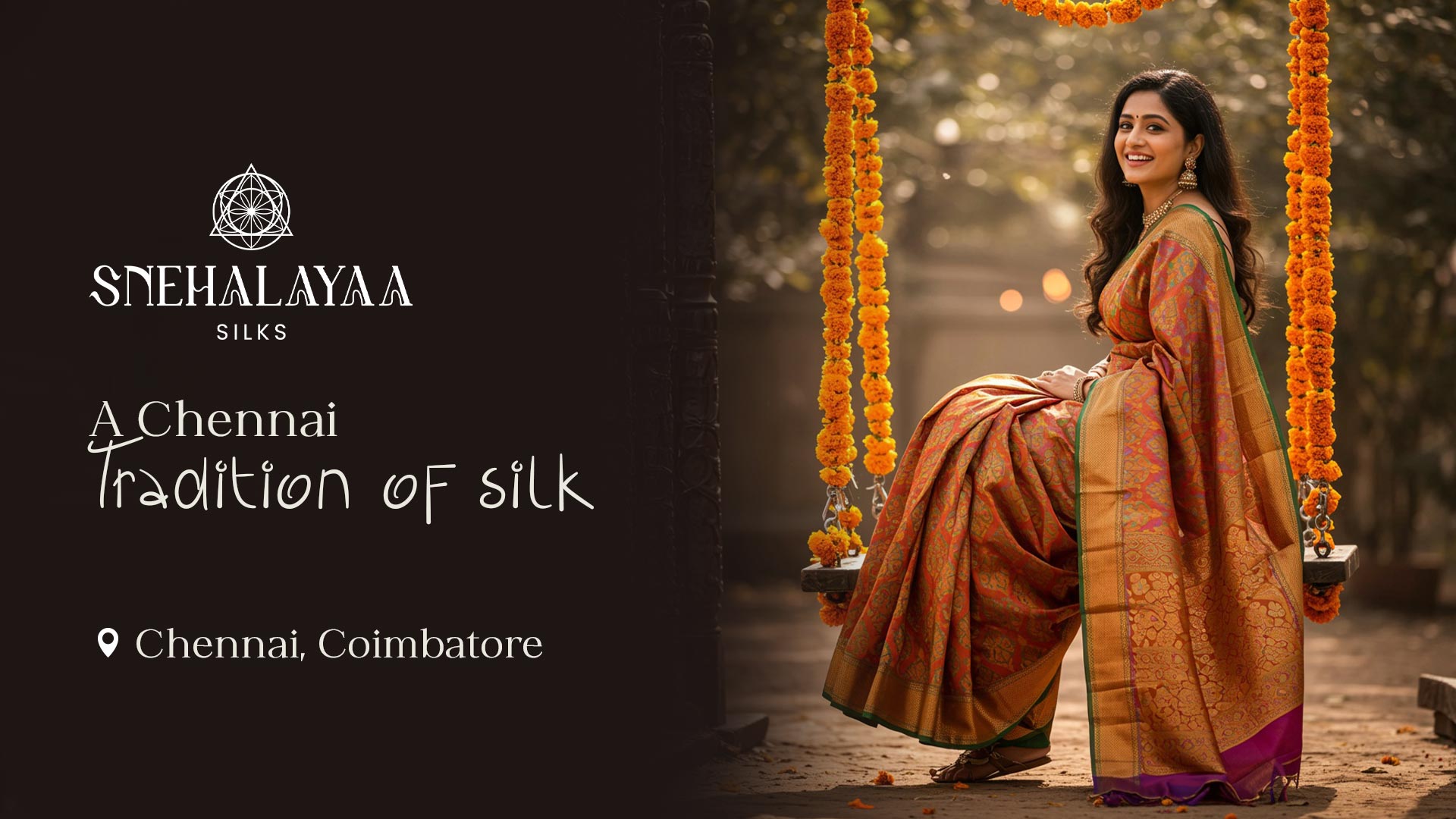When we think of a Kanchipuram silk saree, we often picture the bustling markets of Kanchipuram town. But the artistry behind these regal drapes flows from a network of lesser-known weaving villages across Tamil Nadu. These villages are the beating heart of the pure Kanchipuram silk saree tradition — places where handlooms hum quietly, and generations of weavers spin elegance from threads of silk and zari.
Whether it’s a classic bridal Kanchipuram silk saree or a lightweight everyday version, many of the most breathtaking pieces come from villages you’ve probably never heard of. Let’s uncover them.

1. Arani: A Hidden Powerhouse of Kanchipuram Silk Saree Weaving
Located in Tiruvannamalai district, Arani is one of the most underrated villages when it comes to Kanchipuram silk saree production.
-
Although Arani is famous for cotton, skilled artisans here have mastered the weaving of pure Kanchipuram silk sarees using traditional looms.
-
Sarees from Arani are lightweight, rich in color, and often use naturally dyed silk.
2. Vadamanapakkam: The Soul of Pure Kanchipuram Silk Sarees
Only 40 km from the main city, Vadamanapakkam is a well-kept secret among saree connoisseurs.
-
Known for handloom sarees with intricately woven borders, it’s a goldmine for anyone looking for pure Kanchipuram silk sarees.
-
The village’s signature style includes contrast pallus and bold temple-inspired motifs.
Cultural Note: Weavers here often consult the lunar calendar to decide auspicious days for beginning new sarees, especially bridal Kanchipuram silk sarees.
3. Enathur: Where Kanchipuram Silk Saree Craft Meets Spirituality
A suburb of Kanchipuram itself, Enathur blends religious heritage with the age-old art of weaving.
-
Weavers here are trained from a young age, often alongside their Vedic studies.
-
The Kanchipuram silk sarees woven here frequently feature motifs inspired by Hindu mythology, such as the Annapakshi or Gajalakshmi.
Local Insight: Each loom is considered sacred, and the first saree woven after festivals is always donated to temples.
4. Ilayanarvelur: Mastering the Bridal Kanchipuram Silk Saree Pallu
This lesser-known village near Uthiramerur has a niche: wedding saree pallus.
-
Ilayanarvelur weavers specialize in crafting dramatic, zari-rich pallus — often used in bridal Kanchipuram silk sarees.
-
Their korvai technique ensures sharp contrasts and crisp borders.
Trend Watch: Top South Indian designers often source pallu pieces from Ilayanarvelur and attach them to modern silk bodies for a fusion finish.
5. Nemili: Reviving Ancient Motifs on Kanchipuram Silk Sarees
In Nemili, weaving is not just a trade — it’s a revival mission.
-
This village is known for reintroducing ancient South Indian architectural and religious motifs into Kanchipuram silk sarees.
-
Perfect for brides who want a saree rich in symbolism and story.
Pro Tip: Nemili sarees are often featured in heritage wedding collections for their antique-inspired zari work.

6. Ilaiyankudi: Contemporary Twists to Pure Kanchipuram Silk Sarees
Ilaiyankudi in Sivaganga district is bringing pure Kanchipuram silk sarees into the modern era.
-
While the weaving technique remains traditional, the design palette includes contemporary colors and lightweight textures.
-
These sarees appeal to modern brides who want elegance without the weight.
Innovation Alert: Some weavers use sustainable dyes and ethical zari threads, making them ideal for eco-conscious weddings.
7. Kurinjipadi: Minimalist Bridal Kanchipuram Silk Sarees from the Margins
Located in Cuddalore district, Kurinjipadi is a lesser-known gem with over 100 independent weaver families.
-
This village produces minimalist yet elegant bridal Kanchipuram silk sarees, perfect for intimate weddings and receptions.
-
Their unique matte zari finish adds understated luxury.
Cultural Tip: Locals believe sarees woven during the Tamil month of Aadi bring blessings to the bride and her home
Why These Villages Matter in the Kanchipuram Silk Saree Legacy
As big brands and factories push mass-produced versions of Kanchipuram silk sarees, these small villages remain guardians of authenticity and craft. Each of these communities continues to uphold:
-
Handloom traditions passed down through generations
-
The purity of silk and real zari
-
Cultural rituals embedded in every weave
By supporting them, you’re not just buying a saree — you’re sustaining a legacy.
Final Thoughts: Weaving Beyond Borders
The next time you shop for a pure Kanchipuram silk saree, especially for a wedding, take a moment to ask: Where did this saree come from?
Chances are, its origins lie in one of these quiet villages, in the hands of a weaver who began their day with a prayer, sat on a pit loom, and poured hours of devotion into every thread.
You don’t just wear a saree — you wear the spirit of a village, the culture of a people, and a piece of living history.

